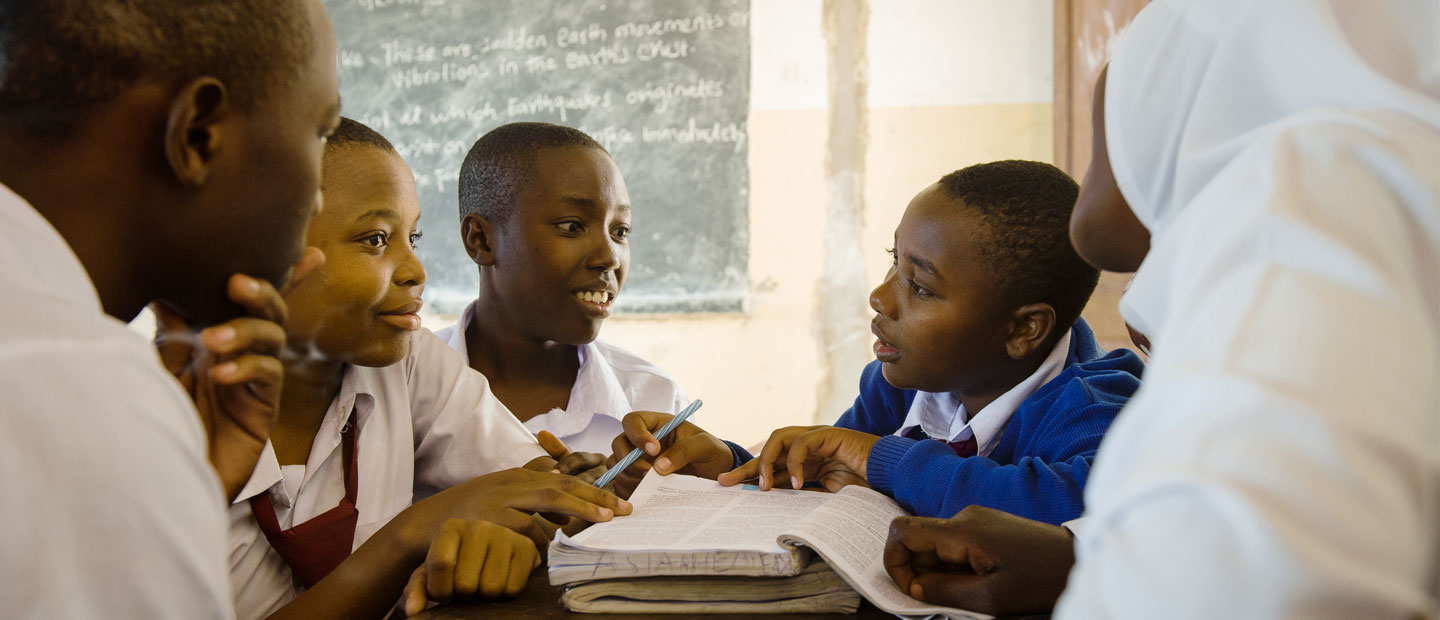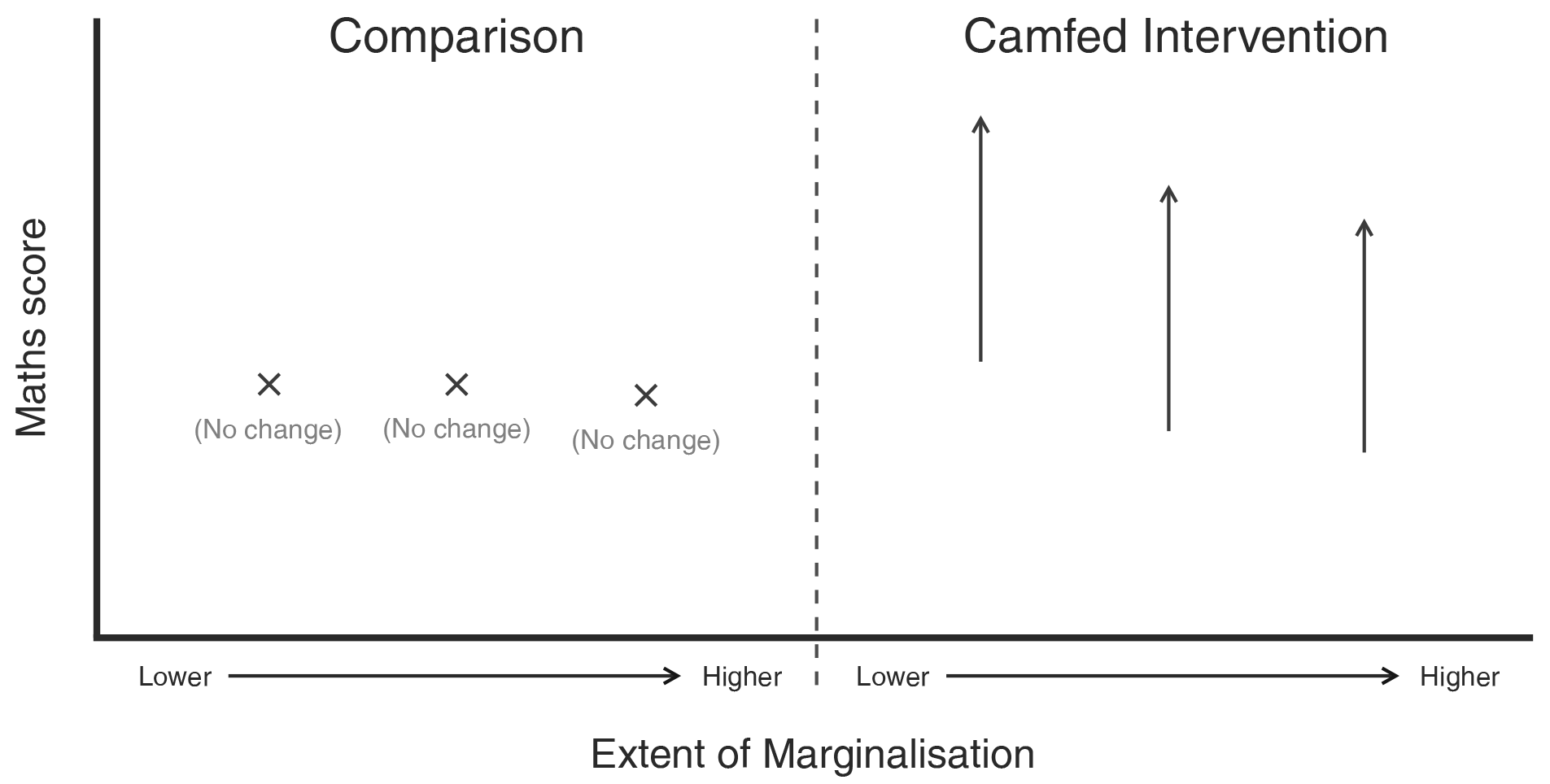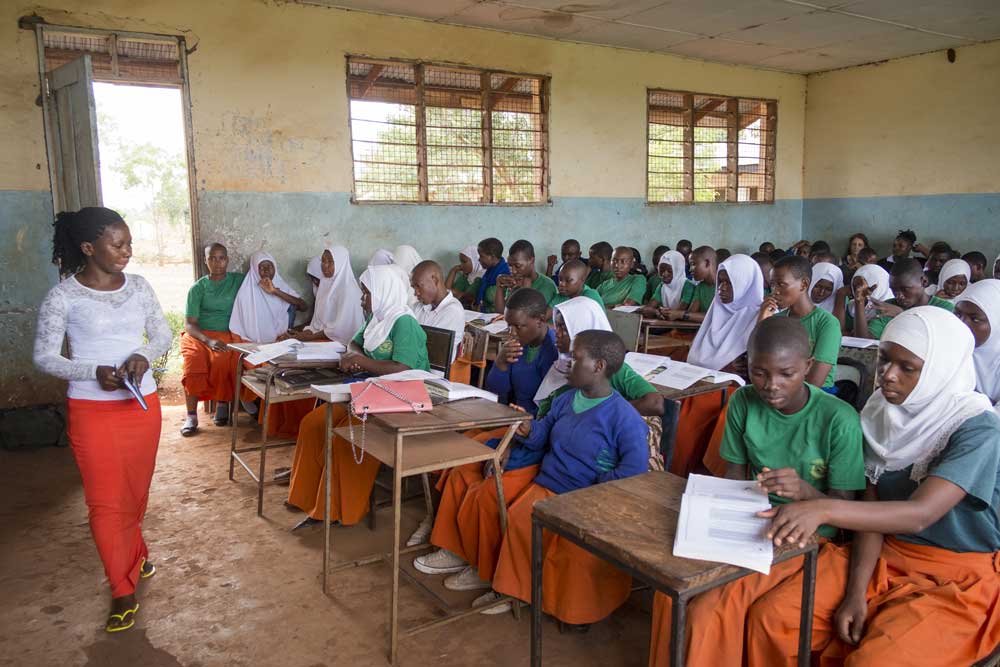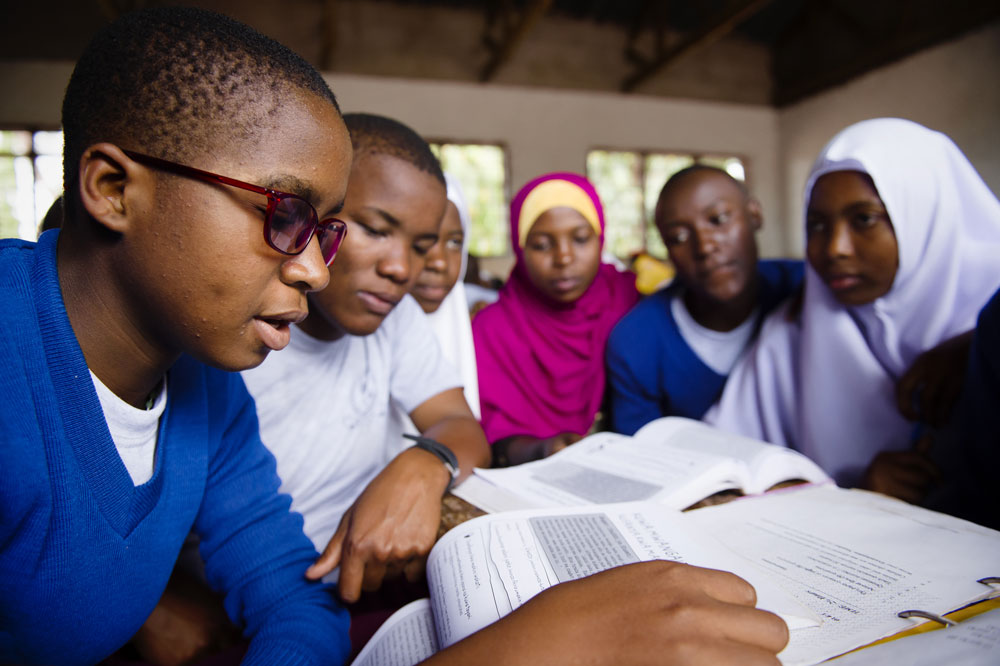
An unprecedented uplift in learning outcomes among marginalized girls

Results from an extensive and innovative education intervention delivered by CAMFED in Africa, funded by the UK Department for International Development (DfID) demonstrate an unprecedented uplift in learning outcomes among marginalized girls.
They show that, with the right kind of support, even the poorest and most disadvantaged students can make good progress through secondary school, and change prospects for their communities for good.
“There’s a huge difference between those who have been educated and those who have not. For me, education is a light, showing me how to build my future and pursue my goals. It is this education that will save me in the future.”
These are the words of 17-year-old Desderia, an orphaned child in rural Tanzania and a CAMFED client who understands that education can, quite literally, save her life. CAMFED
“CAMFED understands that the barriers keeping girls out of school are manifold, complex, and nuanced,” says CAMFED International CEO Lucy Lake. “So our model brings together all those with authority and influence over girls’ lives to pool their knowledge and resources alongside CAMFED’s to ensure girls are supported not just to access school, but to stay in school and succeed. DFID investment has allowed us to scale this holistic support, and demonstrate how multi-stakeholder partnerships can deliver incredible results, and excellent value for money.”
Unprecedented achievements within the government school system
CAMFED’s project includes measures to support girls to go to school, promote their welfare and improve their learning – both academic and by delivering broader life skills through an innovative, context-sensitive curriculum.
It was introduced in 2014 and to date has benefited 247,061 marginalized girls in Zimbabwe and Tanzania, in a network of 991 government secondary schools across 35 rural districts. Results from a rigorous independent evaluation have confirmed unprecedented achievements.
Conducted over a two-year period, the evaluation tracked 11,075 children in 151 schools across the two countries and measured the impacted students’ progress across a number of variables including literacy, numeracy and dropout rates.

Absolute gains in Mathematics test scores for girls in Tanzania according to extent of marginalization (lower to higher marginalization)
Key outcomes include:
- In Tanzania, literacy test scores among marginalized girls reached by CAMFED showed more than double the rate of learning than among girls in comparison schools – and in maths nearly five times the rate
- In Zimbabwe, supported girls were three times less likely to drop out of school
- In both Tanzania and Zimbabwe, self-belief among marginalized girls has rocketed, with more than 95 percent saying they now feel more positive about their futures and better able to shape their life goals
In addition, students reached by the initiative said they felt safer at school, better engaged with teachers and more confident that cases of abuse would be addressed.
Lucy Lake, CEO of CAMFED said of the study: “What’s exciting about these findings is that they underscore the notion that with the proper support, even the most disadvantaged students can make significant educational gains and that dropout rates can be greatly reduced. Just as importantly, the findings validate the idea that these changes can be brought about within the framework of existing government education systems – meaning that this approach is replicable in other communities in sub-Saharan Africa.”
Life skills and empathetic peer mentorship key to success
Key to the success of the project is the experience and expertise of those young women who were once among the most marginalized. In collaboration with departments of education, 3,427 members of CAMFED’s CAMA alumnae network members were trained as “Learner Guides” in Zimbabwe and Tanzania.
As empathetic peers, role models and mentors, they support study groups and deliver a contextualized life skills curriculum, developed with young people in sub-Saharan Africa and education company Pearson.
Crucially, as young women confidantes only a few years older than their students, they provide additional psycho-social support, and work with schools, communities and district governments to keep vulnerable children in school, return child brides, and rally community resources to help children overcome the challenges imposed by poverty.

Learner Guides like Shany (above), use their own experience of marginalization to help young people overcome their challenges, concentrate on their studies, develop the confidence to ask questions and participate, and do better in school, improving their life chances.
This [CAMFED] is an incredibly sustainable model and one that has huge growth potential built into it.
Julia Gillard, Chair of the Global Partnership for Education
The members of CAMFED’s 55,000-strong alumnae network have also proven themselves as a new generation of philanthropists, each, on average, supporting another two children not in their immediate family to go to school. CAMFED patron Julia Gillard, former Prime Minister of Australia and Chair of the Global Partnership for Education, said, “This [CAMFED] is an incredibly sustainable model and one that has huge growth potential built into it.” To date, CAMFED has supported more than 1.6 million children to go to school, and aims to support one million more girls to go to secondary school within five years.
Further reading on CAMFED’s project and results:
How Some Of The Poorest Girls In The World Get Exactly The Education They Need (Jordan Shapiro, Forbes)
How Can We “Leapfrog” Educational Outcomes? (Rebecca Winthrop, Stanford Social Innovation Review)
Millions Learning: Scaling up Quality Education in Developing Countries (Center for Universal Education at Brookings)
CAMFED International Learner Guide Program – Uses My Better World Curriculum (Harvard Graduate School of Education Global Education Innovation Initiative)

